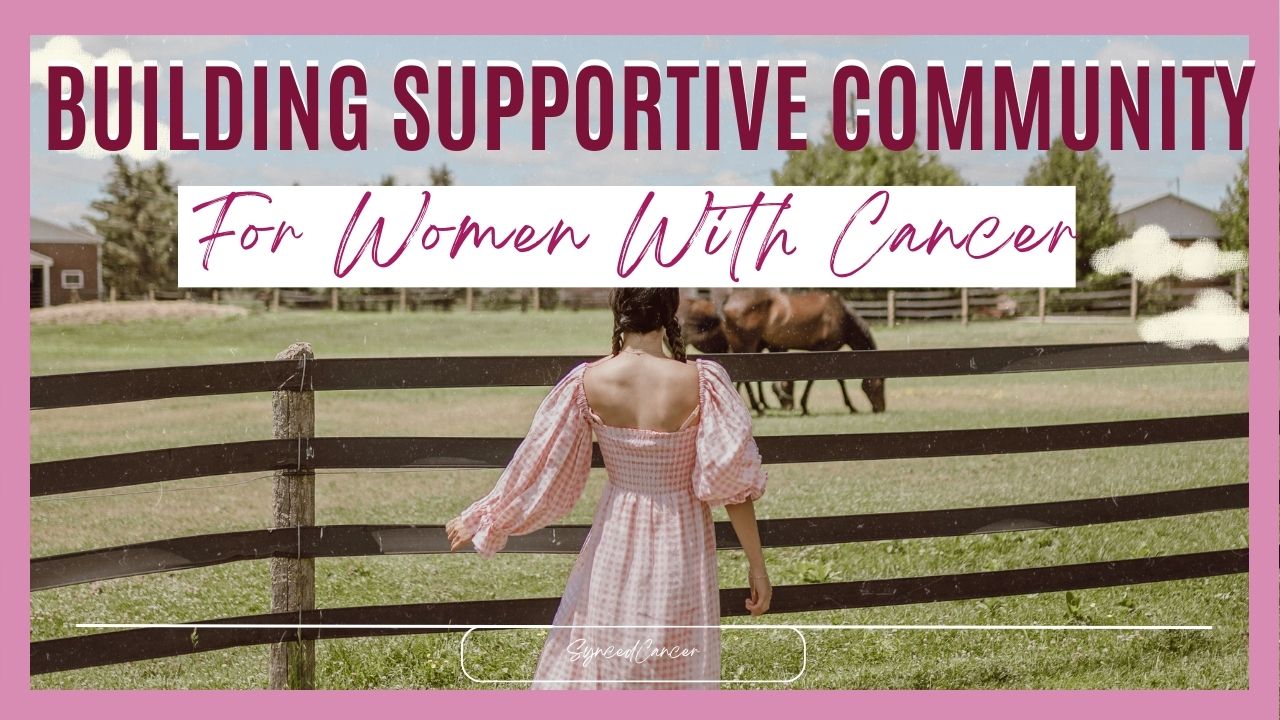In a world often defined by its relentless pace and constant demands, facing a cancer diagnosis can feel like being swept up in a storm of uncertainty and fear. For women grappling with this formidable challenge, the power of community can be a beacon of hope, strength and support.
Building supportive community for women with cancer means empowering them to reclaim their agency and voice in their treatment journey. This can involve providing educational workshops, peer support groups, and wellness activities tailored to their specific needs and interests. Empowerment also means advocating for systemic change, whether it’s improving access to affordable healthcare or challenging societal norms that perpetuate stigma and discrimination.
This blog post explores the ways and importance of building supportive communities for women with cancer specifically, focusing on the key pillars of empathy and empowerment.
Understanding the Journey
The journey through cancer is deeply personal and often riddled with physical, emotional, and psychological hurdles. For women with cancer, the experience can be further complicated by societal expectations, gender-specific health concerns, and familial responsibilities. In the face of such adversity, the need for empathy becomes paramount.
Empathy is more than just acknowledging someone else’s pain; it’s about stepping into their shoes and offering genuine compassion and understanding. Building supportive community for women with cancer starts with listening, validating, and embracing each woman’s unique journey. Whether it’s holding space for tears, offering a comforting embrace, or simply sitting in silence, the power of empathy lies in its ability to foster connection and healing.
Empowerment is the cornerstone of resilience. It’s about equipping women with cancer with the tools, resources, and confidence to navigate the challenges of cancer with courage and grace. Empowerment comes in many forms, from access to quality healthcare and information to opportunities for personal growth and self-expression.

Ways to Build a Supportive Community for Women with Cancer
Creating a Safe Space: The first step in building a supportive community for women with cancer is creating a safe and inclusive space where they feel comfortable sharing their experiences, fears, and emotions without judgment or stigma. This space can take many forms, from online forums and support groups to in-person gatherings and wellness retreats. By fostering an environment of trust and empathy, women can find solace in knowing that they are not alone in their struggles. This sense of belonging can be incredibly empowering and therapeutic, providing a lifeline of support during some of the darkest moments of their journey.
Peer Support and Empathy: One of the most powerful aspects of a supportive community for women with cancer is the opportunity for peer support and empathy. Connecting with other women who are walking a similar path can offer a sense of validation, understanding, and camaraderie that is hard to find elsewhere. Through shared experiences, women with cancer can offer practical advice, emotional support, and encouragement to one another, creating a network of strength and resilience. Whether it’s swapping tips on managing side effects, sharing stories of triumph and resilience, or simply lending a listening ear, the power of peer support cannot be overstated.
Access to Resources and Information: In addition to emotional support, a supportive community for women with cancer should also provide access to practical resources and information to help navigate the complexities of treatment, coping mechanism, recovery, and survivorship. This can include educational workshops, wellness programs, financial assistance, and advocacy initiatives aimed at addressing the unique needs and challenges faced by women with cancer. By equipping women with the knowledge and resources they need to make informed decisions about their care, we empower them to take an active role in their treatment journey. This sense of agency can be incredibly empowering, helping women with cancer regain a sense of control and autonomy in the face of adversity.
Practical Support and Assistance: Transportation: One of the most important types of practical help is transportation to and from medical appointments. The intensive nature of cancer therapies frequently results in exhaustion, and patients may find it difficult or uncomfortable to drive themselves due to side effects from medications or treatments. The role can be filled by a member of the community who agrees to drive the patient to their appointments. They will help with both the actual transportation and the mental support needed while traveling. These car rides can become forums for conversation and bonding, providing a secure, private environment for the patient to voice any worries or anxieties they may have over their upcoming treatment. When traveling with a reliable partner, the experience might be less intimidating and more
Advocacy and awareness: Knowledge is one of the most effective instruments for overcoming difficulties. Educate women about cancer, the various treatment options available, and the difficulties encounter. By being aware of the psychological and physical effects of the illness, you may foster a more encouraging atmosphere. Communities can come together to advocate for better access to healthcare, research funding, and support services for women with cancer. This collective voice empowers women to make a positive impact on the lives of others facing similar challenges.
Celebrating Strength and Resilience: Finally, a supportive community for women with cancer should celebrate the strength, resilience, and courage of its members. By recognizing and honoring the unique journeys and triumphs of each woman, we create a culture of empowerment and inspiration that uplifts and encourages others to keep fighting.
Conclusion
Building a supportive community for women with cancer is essential in providing comfort, strength, and solidarity during one of life’s most challenging experiences. By creating a safe space for sharing, fostering peer support and empathy, providing access to resources and information, and celebrating strength and resilience, we can create a network of support that empowers women to face cancer with courage and grace. Community cancer care serves as a beacon of empathy and encouragement, reminding individuals that they have a community rallying behind them, every step of the way.
REFERENCES
Longdom Publishing SL – https://www.longdom.org/open-access
Cancer Connect – https://news.cancerconnect.com
ORTEC Americas – https://www.linkedin.com










What do you think?
It is nice to know your opinion. Leave a comment.